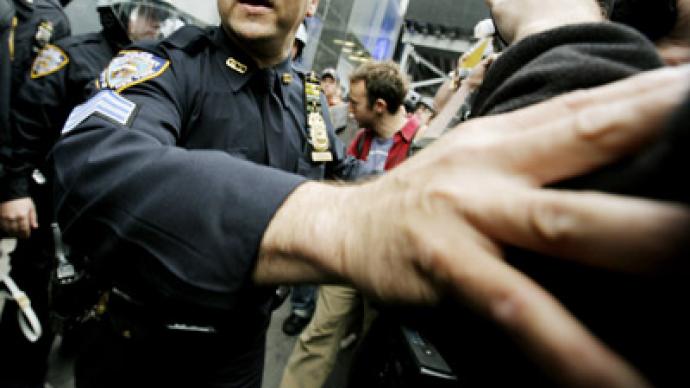NY judge blocks law permitting indefinite detention

A US judge has blocked a military law that permitted indefinite detention of anyone without trial for aiding terrorism, declaring it unconstitutional. Journalists and activists claim the law impedes free speech, and could be used against them.
NY Federal District Judge Katherine Forrest said that the law affected anyone who provided so-called material support to organizations such as al-Qaeda or the Taliban. This definition includes text, video or speech that could be deemed favorable of such groups, written by anyone on US soil. "First Amendment rights are guaranteed by the Constitution and cannot be legislated away," Forrest wrote in her 112 page opinion."This Court rejects the government's suggestion that American citizens can be placed in military detention indefinitely, for acts they could not predict might subject them to detention."She advised Congress to either clarify the law or consider whether it is needed at all. The legislation was originally passed as part of the controversial 2012 National Defense Authorization Act, a 565-page military appropriations bill signed by Obama on New Year’s Eve 2011.The lawsuit against the bill was originally filed in January by a group of journalists whose ranks include former New York Times reporter Christopher Hedges. The group argued that Section 1021(b) of the law allows for the detention of US citizens and permanent residents, solely on the "suspicion of providing substantial support" to al-Qaeda or any other organization engaged in hostilities against US. The law employs vague language that does not define the meaning of ‘substantial support,’ they said.
They claimed that the US government could use the law to arrest and indefinitely detain individuals for even minor suspicions that something they wrote or said that unwittingly supported a terrorist group – a clear violation of Americans’ First Amendment rights.The group was supported by left-leaning activists including Michael Moore, Rachel Maddow, Naomi Wolf, Mother Jones magazine and alternative TV station Democracy Now!, and many others who united against the controversial law.In May, Judge Forrest temporarily suspended the law to hear additional arguments from scholars, journalists and political activists. Hedges testified that he could be detained under the law, since he has interviewed people the government considers terrorists.Hedges has previously interviewed members of al-Qaeda and the Taliban, and has also reported extensively on other terrorist organizations. The rulingIn the ruling, the judge questioned whether a news article perceived as favorable to the Taliban could be considered ‘substantial support’ for the group. “Where is the line between what the government would consider ‘journalistic reporting’ and ‘propaganda?’” she said. "Who will make such determinations? Will there be an office established to read articles, watch videos, and evaluate speeches in order to make judgments along a spectrum of where the support is 'modest' or 'substantial?'"The plaintiffs’ lawyer, Bruce Afran, claimed that the ruling was historic, saying it is rare that a judge would declare a federal law unconstitutional for impeding free speech.The White House fought to preserve the law, arguing that it did not restrict free speech and created no new mechanisms for detention.Ellen Davis, a spokesperson for the US Attorney's office, declined to comment on the ruling.













